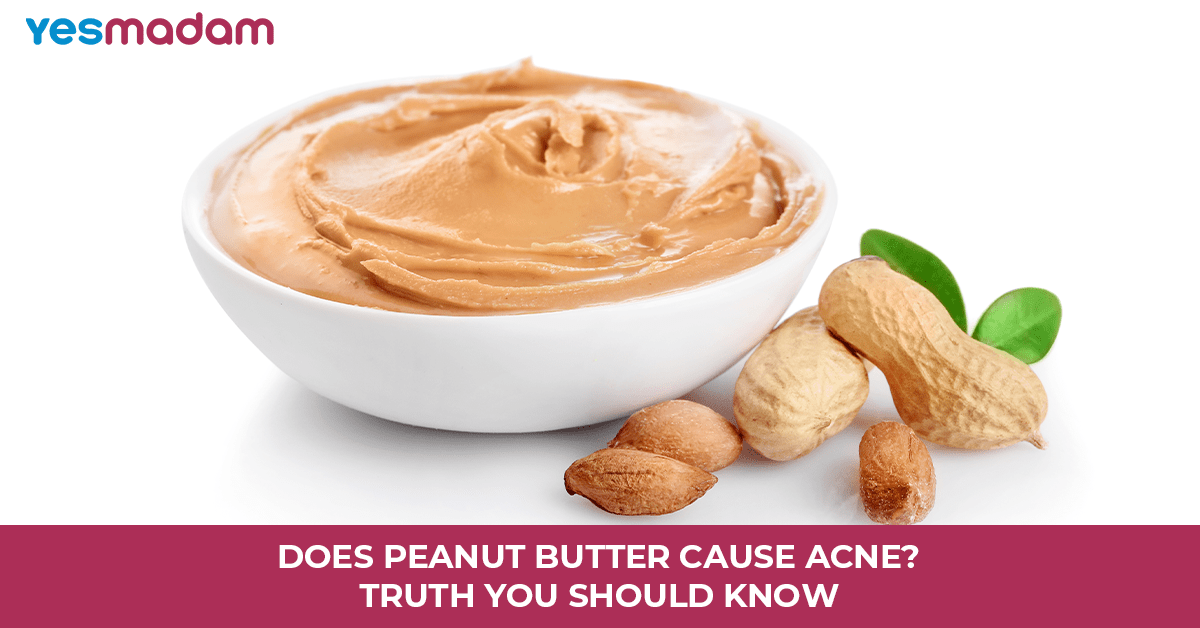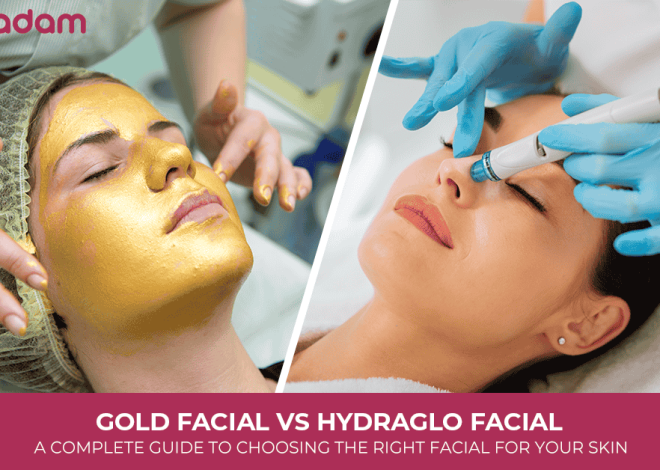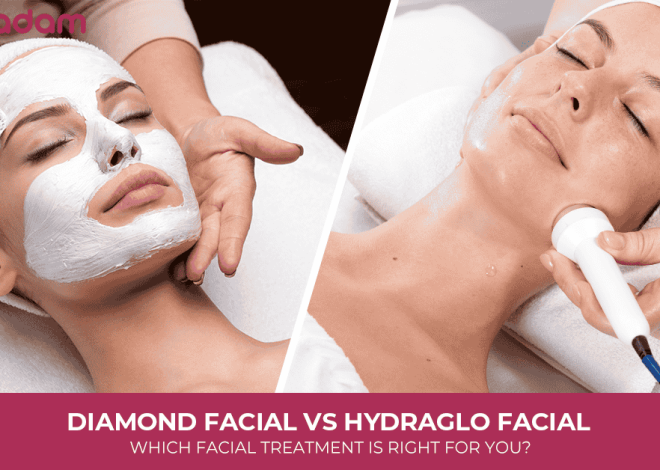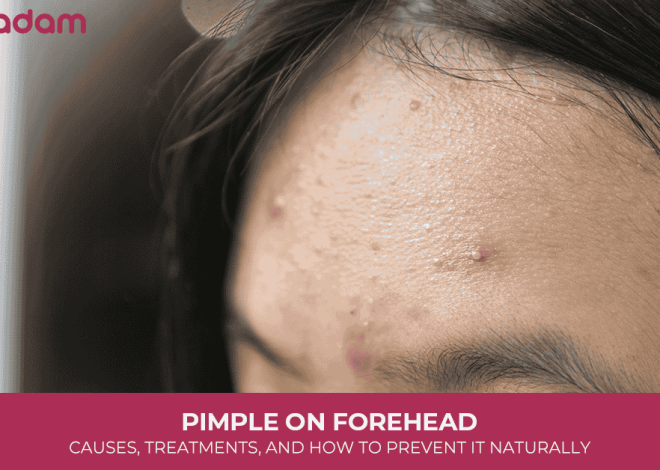
Does Peanut Butter Cause Acne? Truth You Should Know
Rumors about peanut butter causing acne breakouts are everywhere. But should we take this claim seriously—or dismiss it as a myth?
While peanut butter is often considered a protein-rich food, there’s more to the story than meets the eye.
Keep reading to get a clear answer to the question—does peanut butter cause acne—along with smart tips on how to enjoy its benefits without compromising your skin.
Table of Contents
What’s Inside Your Peanut Butter?

Before delving deep into does peanut butter cause acne? It’s important to examine the ingredients found in it:
- Fats: Healthy fats, specifically monounsaturated and polyunsaturated fats. These fats are good for overall health, but may cause issues if eaten in excess.
- Peanut agglutinin (protein): A protein found in peanuts may play a role in gut health, potentially affecting skin issues such as acne.
- Minerals and Vitamins: Vitamins E, B3 (niacin), B6, and minerals like zinc, potassium, and magnesium.
- Carbohydrates: Contains carbohydrates, including sugars, which may impact blood sugar levels.
- Additives: Some commercial brands add salt, sugar, and hydrogenated oils, which may affect its healthiness.
- Omega-6 fatty acids: contain a high amount of it, and when consumed in excess, may cause inflammation, a key part in acne breakouts.
More Information For You: Cica Benefits
Can Peanut Butter Cause Acne?
Scientifically, there is no direct evidence linking peanut butter to acne development. Therefore, to answer the question “Does peanut butter cause acne?” we need to rely on logical reasoning supported by existing research and related factors.
Research insights
- Diets with high amounts of omega-6 fatty acids are linked with increased instances of skin inflammation.
- Eating high-glycemic foods or foods rich in fiber is known to cause a spike in insulin and cause more acne.
- Gut imbalance due to processed foods may cause skin conditions that also include cystic acne.
- Certain hormone-induced acne cases are linked to food-based photoestrogens and preservatives.
Other factors:
- Hormonal factors: Consuming foods that spike your blood sugar, such as peanut products (peanut butter) with added sugars, may contribute to hormonal imbalances.
- Inflammation and acne: Inflammation plays a key role in acne, and given that peanut butter may contain ingredients that can lead to acne, it is reasonable to consider that it may worsen acne for some individuals.
- Individual sensitivity and response: Reactions also vary depending on your skin’s unique responses. While some people may eat peanut butter daily with no breakouts, others may see a pimple pattern within 1-2 days after consumption.
The verdict
So, the short answer is Yes. While peanut butter may not cause acne in every person, it does cause acne in individuals, especially those who consume processed peanut butter versions. The more processed your peanut butter, the higher the risk that it may include acne-triggering compounds stated above.
Don’t Miss: Mineral SPF vs. Chemical SPF
Top Peanut Butter Ingredients That Relate To Acne

Now that you know the nutritional profile of peanut butter and whether it can cause acne or not. Here’s a final look at the ingredients of peanut butter that may cause acne:
1. Omega-6 fatty acids
A high amount of omega-3 fatty acids in peanut butter may lead to acne. This component may cause chronic inflammation. As per studies, high levels of omega-3 in the diet may influence acne formation.
2. Lectins
Lectins are yet another component of peanuts and their derivatives that may cause acne by damaging the gut.
3. Added sugar
Commercial peanut butter generally includes a good amount of added sugar that can also influence insulin secretion. Excessive insulin secretion may trigger the release of
- 1GF-1 impacts sebum oil production, which clogs your skin pores.
- IGFBP-3 can increase new skin cell development and further block pores.
- IL-1 causes inflammation, redness, and, ultimately, pimple formation.
4. Added vegetable oils
The majority of peanut butter includes hydrogenated vegetable oils such as sunflower oil, canola oil, and soybean oil. Vegetable oils, as rich sources of omega-6 fatty acids, tend to make peanut butter pro-inflammatory, thereby increasing the risk of acne.
Tips To Cure Peanut Butter Associated Acne
To address peanut butter-associated acne, first, eliminate or significantly reduce peanut butter and other potential acne triggers like high-sugar, high-glycemic-load foods, and dairy.
Dietary Changes
- Reduce or eliminate peanut butter: Stop consuming peanut butter to see if it helps with your acne.
- Limit high-glycemic-load (GI) foods: High-sugar and high-glycemic-load foods can worsen acne, so consider reducing your intake.
- Incorporate anti-inflammatory foods: Add foods like fatty fish, green veggies, mixed nuts, yogurt, and green tea to your diet.
- Consider an elimination diet: Try a temporary elimination diet to identify which foods, including peanuts, might be contributing to your breakouts.
Skincare Routine
- Wash your face twice daily: Use a gentle soap or a cleanser with salicylic acid or benzoyl peroxide to remove dirt and excess oil.
- Use targeted ingredients: Incorporate skincare products containing niacinamide to help reduce inflammation.
- Protect from the sun: Avoid direct sun exposure and use a sunscreen to prevent worsening acne.
- Use gentle products: Avoid harsh exfoliants or scrubs that can irritate the skin.
Other Tips
- Don’t pop pimples: Resist the urge to pick or pop pimples, as this can worsen acne and lead to scarring.
- Monitor your skin: Pay attention to your skin’s reaction and adjust your diet and skincare as needed.
Related Blog: Freckle Treatment
Smart Lifestyle Changes and Topical Treatments To Treat Peanut-Butter-Induced Acne
In addition to these aforementioned tips on how to cure acne caused by peanut butter, the following smart lifestyle tips and topical treatments will also help.
Lifestyle changes
- Hydration: It is essential to drink a lot of water to help flush out toxins and aid in overall skin health.
- Stress management: Stress is the biggest cause of acne breakouts. Relaxation techniques such as meditation, yoga, or everyday exercise can help manage stress effectively.
- Adequate sleep: Take 7-9 hours of good quality sleep. It has an impact on skin health and recovery.
Topical Treatments
- Tea tree oil: It has natural antibacterial properties and thus can be applied to acne spots to minimize bacteria and inflammation.
- Green tea extract: Applying green tea extract enriched with antioxidants may soothe the skin and minimize sebum production.
- Salicylic acid: It is a type of beta-hydroxy acid that helps treat whiteheads and blackheads and penetrates oil to exfoliate the pores inside.
- Benzoyl peroxide: As an over-the-counter remedy, benzoyl peroxide may kill acne-causing bacteria beneath the skin, helping decrease inflammation.
Acne -Safe Healthier Butter Alternatives To Consider
Finding healthier butter alternatives is important for those who find that foods like peanuts cause acne, or rather, the core concern of this blog, peanut butter may cause acne.
| Butter alternatives | Uses/benefits |
| Almond butter | Low in omega-6, high in vitamin E, great for skin repair. |
| Cashew butter | Slightly creamy, sweet, and less inflammatory, with less likelihood of triggering acne. |
| Natural peanut butter | Includes only peanuts ( or may be salt) , minus oils or sugars. |
| Avocado-based spreads | Full of healthy monounsaturated fats. |
| Coconut butter | Anti-inflammatory and anti-bacterial properties may support clear skin. |
| Barney butter, macadamia butter, etc | Contain lesser inflammation-causing omega-6 fatty acids. |
Conclusion
To wrap up, does peanut butter cause acne? The honest answer is yes, it can. The likelihood of developing acne increases with processed peanut butter varieties that contain oils, sugar, and additives. While the creamy allure of peanut butter is hard to resist, moderation is the key here. It is all about finding a balance between indulgence and awareness. Doing so, as highlighted throughout the blog, will help you enjoy your favourite spread without compromising on your skin’s health.
FAQs
What are peanuts for acne?
Peanuts and acne are often linked because of how peanuts affect the body. Peanuts are high in omega-6 fatty acids, which, when not balanced with enough omega-3s, may cause inflammatory acne in the body.
Does eating peanuts cause acne?
Yes, excessive consumption of peanuts can trigger acne. The types of nuts that might cause acne are those with high omega-6 content, such as walnuts, pine nuts, and almonds.
Does natural peanut butter cause acne?
No, natural peanut butter itself isn’t directly proven to cause acne, but it may contribute to breakouts for some individuals due to its high content of omega-6 fatty acids and potential for causing blood sugar spikes.
Do peanuts cause acne?
The answer is maybe. Peanuts can contribute to acne for some individuals, but there’s no definitive scientific proof, as reactions vary.
Can peanut butter be part of a healthy diet for someone with acne?
Yes. When eaten in moderation and paired with a balanced diet rich in fruits, vegetables, and omega-3 sources (like flaxseeds or fish), peanut butter can still be enjoyed without major skin problems
How much peanut butter is safe to eat without affecting acne?
Moderation is key. Consuming 1–2 tablespoons a few times a week usually doesn’t cause issues for most people, but those with acne-prone skin should monitor their reactions and avoid overconsumption.
Can peanut butter worsen hormonal acne?
It might. Peanut butter is high in omega-6 fatty acids, which can affect inflammation and potentially worsen hormonal acne in individuals who are already prone to it.
Does the protein in peanut butter help or harm skin?
Protein in peanut butter is beneficial for overall health, including skin repair. However, acne flare-ups are usually linked to additives, sugar, and fats in processed peanut butter rather than the protein itself.
Is natural peanut butter better for acne-prone skin?
Yes. Natural peanut butter made only from peanuts (and sometimes a little salt) is a healthier option since it avoids added sugars and hydrogenated oils, making it less likely to trigger acne flare-ups.



